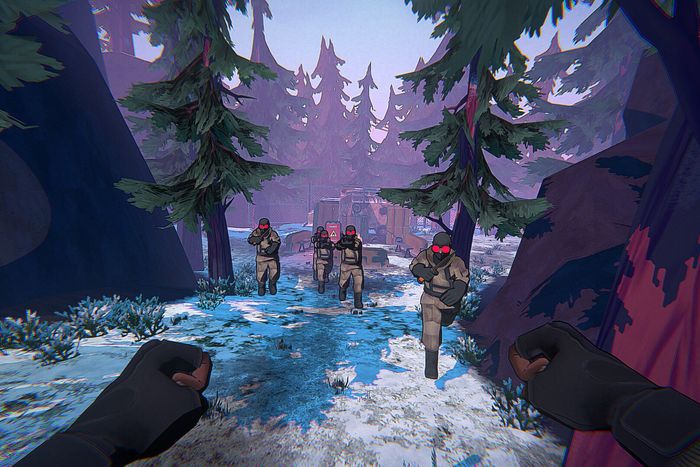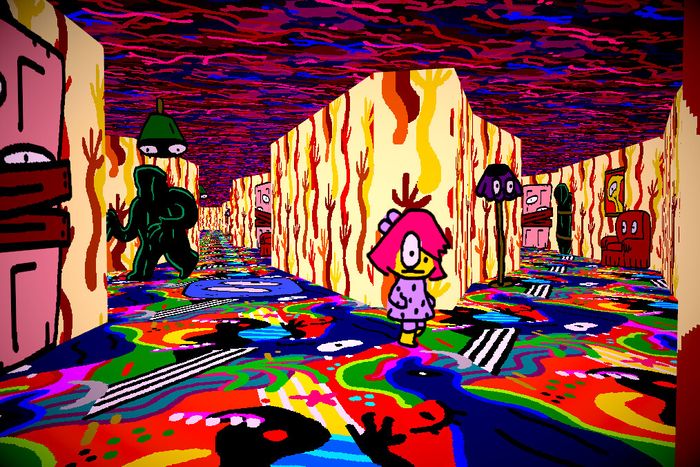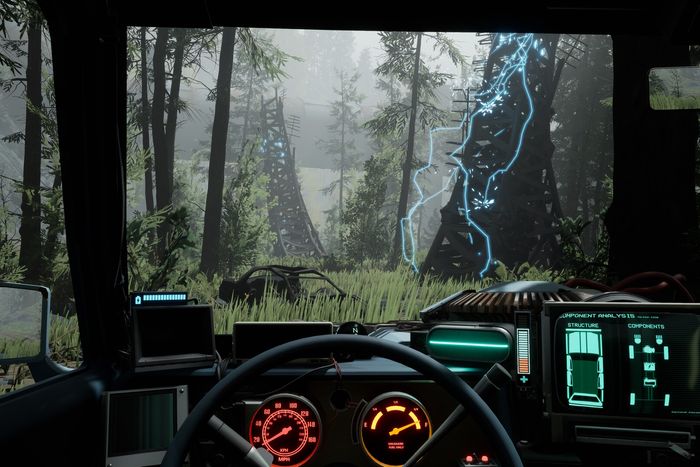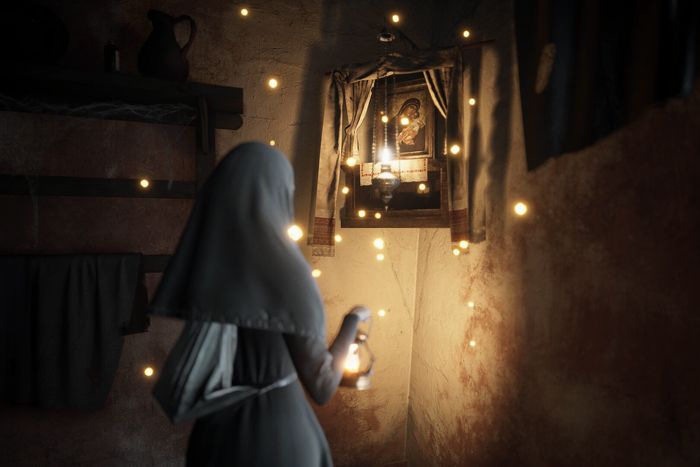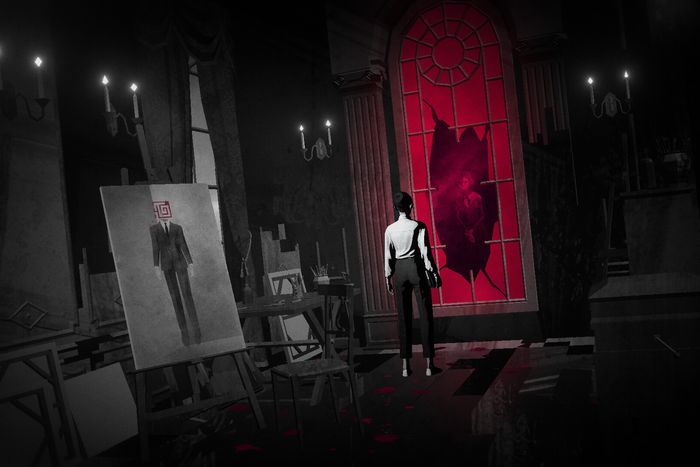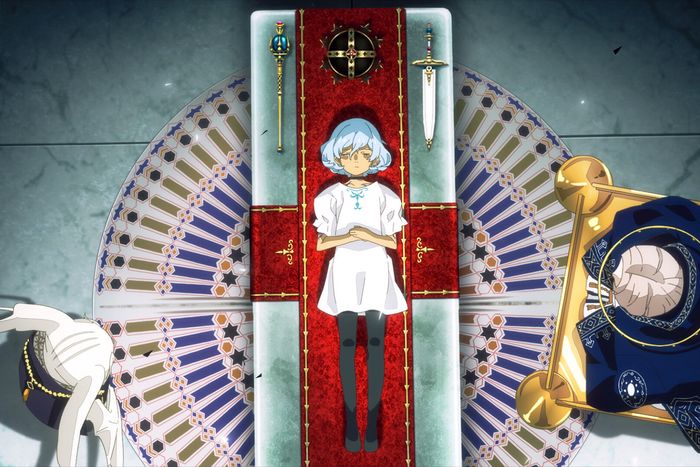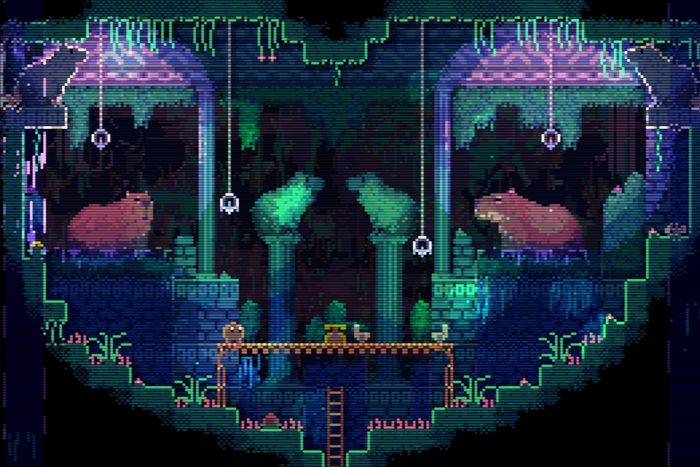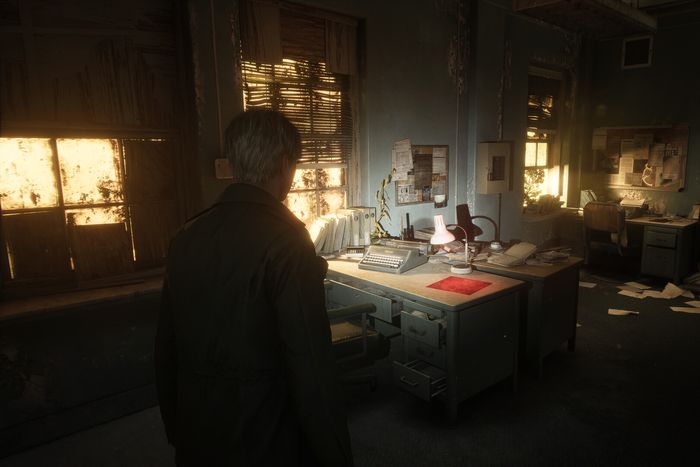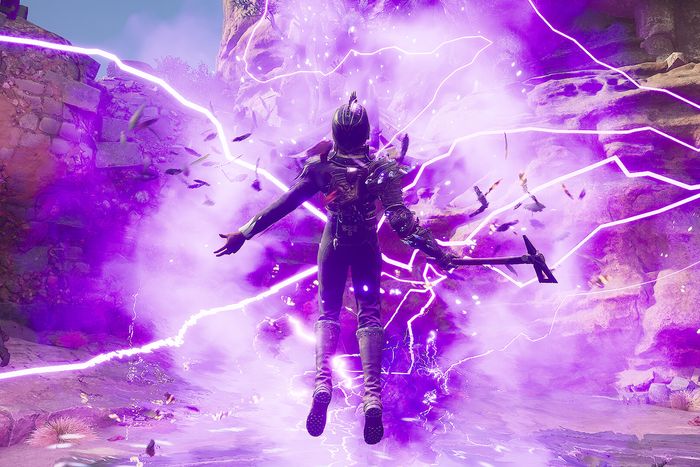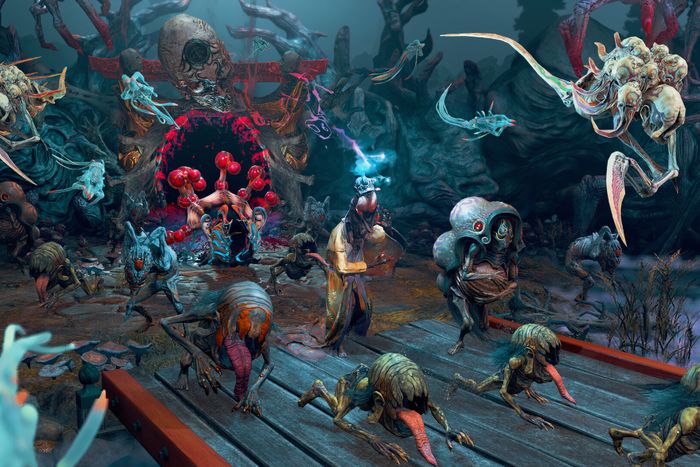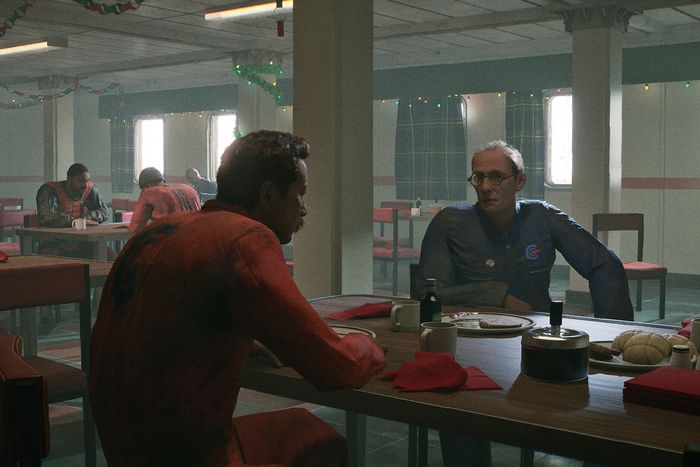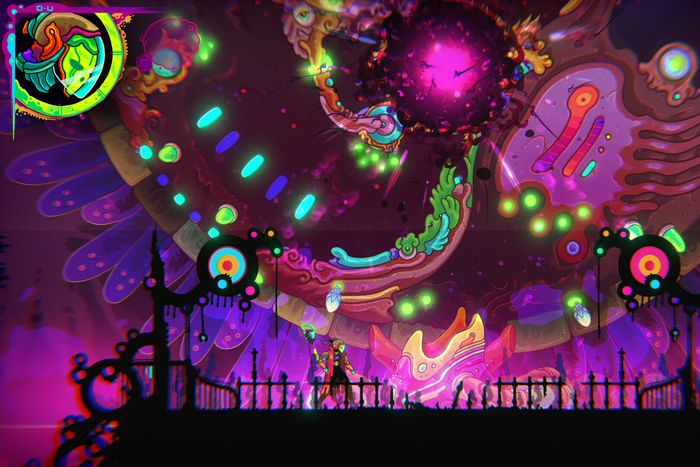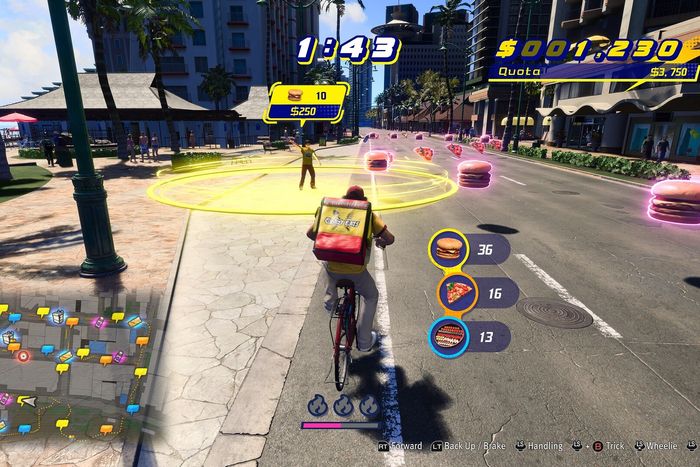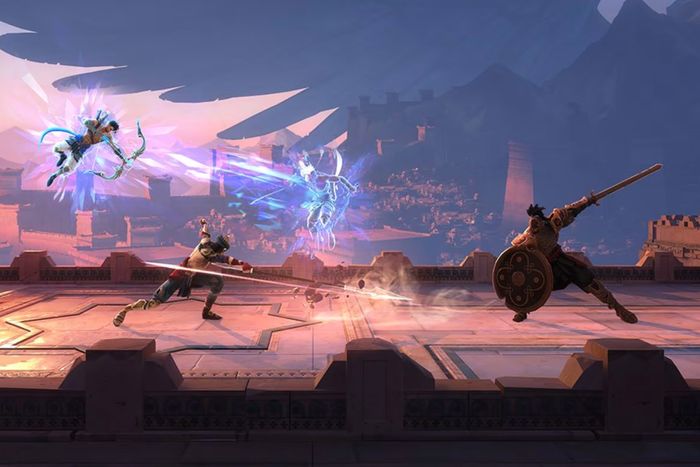
Is the era of the blockbuster console exclusive coming to an end? In 2024, the conspicuous absence of big-name, first-party titles certainly made it feel that way. Sony’s major exclusive was Astro Bot, a brilliant if modest platformer compared to the God of War and Horizon games. Nintendo delivered enjoyable if flawed titles such as Mario & Luigi: Brotherhood and The Legend of Zelda: Echoes of Wisdom, each lacking the true magic of a major Mario or Zelda title. Microsoft’s sole standout (at the time of writing) was the medieval hack-and-slash, Senua’s Saga: Hellblade II. Even more telling was Sony and Microsoft’s efforts to release games beyond their respective consoles. Sony’s excellent online shooter Helldivers 2 arrived on both PlayStation 5 and PC; Microsoft’s multiplayer pirate adventure Sea of Thieves jumped ship from PC and Xbox to the PlayStation 5. Video games are not getting cheaper to make and market; 2024 saw these companies looking to expand their territories beyond their traditional home turf.
With a lack of major console exclusives, 2024 presented an opportunity for multiplatform games to assert themselves. They did so in thrillingly weird style: this year, we entered into the mind of a conflicted nun, descended into a well populated by a menagerie of killer animals, cracked yakuza skulls in Hawaii’s sunny climes, and ventured across an unforgiving ocean floor as a hermit crab attempting to retrieve its stolen shell. In addition to such delightful, offbeat strangeness, a handful of games felt in tune with the current tumultuous moment in which, more so than facts, it is narrative and perception that appears to shape reality. The likes of Metaphor: ReFantazio (bad name, great game) and Indika used metafictional flourishes to explore the stranglehold stories and fantasies have over our lives, and the means by which we might decisively break free of them. The video game industry might be a mess right now (layoffs continued in 2024 unabated), but there’s no doubting the burning, white-hot talent of its creatives.
10.
I Am Your Beast
(PC)
I Am Your Beast plays like a first-person John Wick movie set to a constantly ticking clock. You play as Harding, a lone military veteran, who is called back into action by his former handler, Burkin. Except Harding won’t go, and certainly not quietly. The enjoyably pulpy premise is matched by appropriately furious on-screen violence: grab enemies’ weapons (knives, rifles, shotguns, etc), use them until they’re spent, and then fling them at nearby targets for one final flourish of damage. You do all this while sprinting, sliding, and leaping through micro-sandbox levels of trees, bushes, and makeshift shacks. Like 2022’s Neon White, this is a shooter with the DNA of speedrunning. Each meticulously arranged level is initially a site of improvisation; then, while honing on the clock, they become an opportunity for pinpoint choreography. The structure gives I Am Your Beast such a distinctive flavor: part sport; part dance; all gruesome, stylish action. The mission is simple: wipe out the military-industrial complex. Just make it look effortlessly cool.
9.
Astro Bot
(PlayStation 5)
Astro Bot may not be the most original game on this list but I’ll be damned if Sony’s throwback 3D platformer isn’t the most polished. From each wonderfully robust power-up, the haptic feedback that rattles through the controller, and the eye-popping graphics which gleam and sparkle like a treasure box filled with jewels, Astro Bot is a pleasure-tickler of the highest order. As much as the game evokes the past with its unashamedly linear set of levels jam-packed with obstacles (and a bizarre singing tree), it also reflects the present IP-dominated moment. You come across all manner of Sony-owned characters on your travels, from Parappa the Rapper to the god of war himself, Kratos. But even this flagrant corporate cheerleading cannot sully the sheer moment-to-moment joy of playing Astro Bot. The Tokyo-based studio Team Asobi has crafted Sony’s most unabashedly fun game in years.
➽ Read Lewis Gordon’s full review of Astro Bot.
8.
Anthology of the Killer
(PC)
It is no secret that horror games are having a moment: the recent remake of Silent Hill 2; last year’s Alan Wake 2; the ongoing slew of low-res horror gems. Anthology of the Killer, an unrelentingly bizarre DIY horror game from indie auteur, thecatamites, stands with the very best of these. You play as BB, an art student whose desire to make a zine, and need for content to fill its pages, causes her to get into all kinds of gruesome scrapes with murderous maniacs. The game collects nine standalone episodes released from 2020 until 2024, and the unhinged style is evident from the very first entry. Every element of these horror-tinged walking simulators is intended to make you feel queasily uneasy: swirling sound design; the flickering, nearly migraine-inducing cartoon visuals; the dream logic of the maze-y environments; offbeat writing colored, at all times, by the threat of violence. The best indie designers tend to iterate on a video game they themselves sunk millions of hours into during their youth. But Anthology of the Killer has no precedent; it is a work of singular, outsider brilliance.
7.
Pacific Drive
(PC, PlayStation 5)
Few games operate at such tonal extremes as Pacific Drive. There are the peaceful moments spent in your garage tinkering and repairing your trusty old station wagon, all while the radio drones comfortingly in the background. Then there are the white-knuckle car rides through the Pacific Northwest as an unstoppable cosmic maelstrom rips through its pristine wilderness. At first, Pacific Drive can feel interactively overwhelming, and it may just be the flair of the audio-visual presentation which carries you through initially (seriously, few games have better or more atmospheric weather effects). But it soon becomes clear that every gameplay mechanic and simulationist quirk pulls you deeper into this absorbing tale of vehicular survival. From changing a hubcap to turning on the windscreen wipers as acid rain begins to hail down, and even having to manually put the car into drive, Pacific Drive is destined to become an all-timer for a very specific type of video-game fetishist.
6.
Indika
(PC, PlayStation 5, Xbox Series S|X)
Thanks to graphics rendering technology, video games are uniquely suited to showing us a world transforming in real-time. Indika has many such moments — not because the world is physically changing, but because its protagonist’s worldview is. The titular Indika is a young Russian nun in a fantastical version of the nineteenth century. She has doubts about the Russian Orthodox Church and feels as if she is in communion with the Devil himself. At various points in the third-person action-adventure, the fabric of Indika’s reality is ripped apart, the game’s geometry morphing, transmuting, and reconfiguring itself, all while Lucifer chatters incessantly in her ear. At other less stressful moments, she explores snow-covered rural expanses and architecture so super-sized and wonky that it defies the laws of conventional physics. This artful, ravishing game makes clear the pain and difficulty in casting aside the doctrine of the Church — the trials and tribulations in seeing beyond such an all-encompassing, reality-defining status quo.
➽ Read Lewis Gordon’s full review of Indika.
5.
Lorelei and the Laser Eyes
(Nintendo Switch, PC)
Lorelei and the Laser Eyes poses an odd yet tantalizing question: What if a compendium of word and number puzzles, the kind you might take on holiday, were scattered about a creepy hotel? And what if the aesthetic of this delightfully off-kilter, head-scratching experience were indebted to French new wave cinema, particularly Alain Resnais 1961 classic, Last Year at Marienbad? It’s disorientating at first, but developer Simogo gradually (and masterfully) teaches you to recognize the patterns and logic which govern this metatextual world.
4.
Metaphor: ReFantazio
(PlayStation 5, PlayStation 4, Xbox Series X|S, PC)
With 2016’s highschool adventure, Persona 5, Japanese outfit Atlus hit the critical and commercial big time. The studio also proved that the JRPG featuring turn-based combat, a genre whose popularity peaked in the 1990s with the Final Fantasy series, could be a force in modern gaming. Expectations were sky-high for the studio’s follow-up, Metaphor: ReFantazio, and the game duly delivered. You’re whisked off to the fantasy realm of Euchronia where a succession crisis has been triggered by the king’s murder. So begins a big, broad, and absorbing story in which Atlus skillfully subverts and complicates its rote premise and setting. Alongside lots of elf ears, you encounter monsters that evoke the surreal and sublime terror of Hieronymus Bosch and Salvador Dalí. Our unnamed hero also takes time out from the battle to read a fantasy novel whose utopian fantasy realm — twist! —is basically a civil, functioning democracy. Gradually, the game builds to something beautiful: a metafictional meditation on fantasy and utopia; an examination of the stories we tell ourselves in order to make sense of a broken world.
3.
Balatro
(Nintendo Switch, PC, PlayStation 4, PlayStation 5, Xbox One, Xbox Series S|X)
Most years deliver a fiendishly compulsive indie game to eat up our spare time. 2023 gave us Dave The Diver; the year before that offered Vampire Survivors; 2024 has yielded Balatro. It is a roguelike deckbuilder, a genre mash-up of run-base roguelike and old-school physical deckbuilder (like Magic: The Gathering), with a novel element: poker. At first, Balatro plays a lot like poker in the real world: Two pair? Fine. A flush? Even better. Between rounds, however, you get to spend your winnings in the shop, accruing modifying cards that flare the action off in genuinely bizarre directions. These might be holographic, steel, or gold versions of cards that confer multipliers or additional chips. Tarot cards are even part of this unruly equation, transforming your deck in strange and interesting ways. Within a few rounds, Balatro transcends its everyday inspiration to become a kaleidoscopic blur of numbers and color. It’s poker but not quite as you know it — poker that feels nearly psychedelic.
2.
Animal Well
(Nintendo Switch, PC, PlayStation 5)
Billy Basso spent a remarkable seven years making Animal Well, a puzzle-platformer set in a Borgesian labyrinth inhabited by gigantic, killer animals. With this timeline (and subject matter) in mind, it’s tempting to read the game as a manifestation of the solo-developer’s subconscious, but is Animal Well a lo-fi dream or nightmare? Whatever the answer, it is one of the year’s most beautifully designed games, one that makes its exploration and puzzle-solving feel effortlessly natural and not, in fact, the product of painstaking nudges by Basso himself. The pixel-art graphics sell the dank, eerie loneliness of this gameworld. Just as impressively, Animal Well possesses a wonderful, and rare, sense of physical cohesion. A Slinky (one of the pleasingly humdrum objects you pick up on your journey) cascades down the cavernous interiors; a Frisbee bounces about the echoey walls and can be used to distract ravenous dogs. Animal Well would be a career-defining achievement for a game studio of any size, let alone that of a single person.
1.
Dragon’s Dogma 2
(PC, PlayStation 5, Xbox Series S/X)
Compare the design philosophy of Dragon’s Dogma 2 with that of another acclaimed fantasy action-RPG, 2022’s Elden Ring. The latter, said director Hidetaka Miyazaki, is defined by “hardship.” The former’s crucial quality is closer to delight and surprise. Sure, you get pummeled by giant monsters, from griffins and ogres to lumbering cyclopses, but more than honing your combat skills, Dragon’s Dogma 2 is about moving through an bucolic open world teeming with interactive possibilities. Use the day-night cycle to your advantage, preparing while the sun is down, navigating when it is up. Talk to absolutely everyone because quests do not just fall into your lap. Listen to what they say because quest markers, for the most part, simply do not exist. Throw in the ambient multiplayer of the pawn system, one that lets you create a secondary character and download those of your friends’, and you have a clockwork set of mechanics that summon, with bravado, ingenuity, and no shortage of flair, the most highly coveted of interactive experiences: pure adventure.
For the most part, Dragon’s Dogma 2 operates as a myth, self-consciously replicating the heroic, world-saving adventure of its predecessor. But a tremendous and daring late-game twist challenges this narrative of cozy, repeating stories. Dragon’s Dogma 2 may trade in timeless medieval fantasy tropes but it is not regressive: rather the game’s plot is fundamentally about ending cycles, of summoning the wherewithal to break with history itself.
➽ Read Lewis Gordon’s full review of Dragon’s Dogma 2.
Honorable Mentions
Throughout 2024, Lewis Gordon maintained a “Best Video Games of the Year (So Far)” list. Many of those selections appear above in his top-ten picks. Below are the rest of the games that stood out to Gordon this year:
Phoenix Springs
(PC)
Weird noirs have been a staple of the point-and-click adventure genre for practically all of the genre’s existence: classics like 1993’s Sam & Max Hit the Road and the delightfully wicked Grim Fandango, released in 1998. The visually ravishing Phoenix Springs is weird noir, but in a different way, taking its cues from so-called “weird fiction” popularized by the likes of China Miéville. This is a heady, serious work whose story nods to bioethics, toxic fungi, and a mysterious green paradise in the heart of a desert. Yet it is driven by an undeniably affecting mystery: A tech journalist is searching for her missing brother; how far is she willing to go to find him? Beyond its hyperstylized, graphic-novel-esque visuals, Phoenix Springs offers smart updates to the point-and-click formula. You are not combining objects to solve puzzles but ideas; you’re not delving into an inventory but a sprawling mindmap. The result is a supple, modern take on the genre governed by a free-associative dream logic. Like an arthouse movie, don’t expect this unsettlingly beautiful game to answer every one of its tantalizing questions.
Silent Hill 2
(Playstation 5, PC)
Few titles in the history of video games have felt caught between eras quite like Silent Hill 2 did in 2001. In story and visuals, Konami’s seminal survival horror was undeniably modern — an accursed deep dive into a Freudian subconscious whose vibe was simultaneously pulpy and prestige. But in feel, Silent Hill 2 had more in common with Resident Evil games of the 1990s: a fixed camera (the result of hardware limitations) was creepy but ultimately unwieldy; the combat, meanwhile, was clunky and far too easy, undermining the game’s infernal, depraved atmosphere. The remaster, by Polish studio Bloober, addresses these issues while sacrificing nothing of what made the original great. It switches the viewpoint to a modern over-the-shoulder camera vantage; the combat is nervier and more desperate, as if you’re surviving each encounter by the skin of your teeth. You could make the argument that this remake plays it a little safe, often re-creating cinematics line-for-line and shot-for-shot. But that isn’t quite right: The 2024 version of Silent Hill 2 is a subtle, thoughtful reimagining of one of gaming’s true sacred cows. It is as brilliantly miserable as the esteemed original.
Flock
(PlayStation 4/5, Xbox One, Xbox Series S/X, PC)
The latest from indie auteurs Hollow Ponds and Richard Hogg riffs on Pokémon’s creature-collecting formula, albeit from a naturalist’s point of view. You identify adorable critters so you can fill out a field guide, then enlist them into your flock from some kind of kinship. The relaxed action takes place in an open world of mushroom caverns, mossy boulevards, and flat wetlands, all rendered in a beautifully odd, Pop Art aesthetic. As you fly about, the nature-inspired soundscape of trills, honks, and delicate rustlings offers clues to where to cast your gaze. It adds up to one of the year’s loveliest titles, a game of ruminative observation set in a world of wild splendor.
Flintlock: Siege of Dawn
(PC, PlayStation 5, Xbox Series S/X)
New Zealand studio A44 made its name with 2018’s Ashen, a confident, inviting take on the famously punishing Soulsborne genre. Flintlock: Siege of Dawn is even more accessible: quippy and vivacious, pairing magic with a steampunk aesthetic and a series of arresting, earthy locales. The combat exudes a wonderful crackle and pop: A pistol is used primarily for defense, while an axe rips through ornate armor. Exploration is artfully designed, whisking you through bone-white palaces; craggy, precarious mountains; and fishing villages that have fallen on hard times. Like most Soulsborne games, paths criss-cross while cosmic aerial shortcuts offer a thrilling new perspective on the entangled environment below. Flintlock: Siege of Dawn may lead with skull-piercing combat, but what lingers in the mind is its undeniable and unusual approach to cultivating wanderlust.
Kunitsu-Gami: Path of the Goddess
(PlayStation 4/5, Xbox One, Xbox Series S/X, PC)
In a year already flush with weird, mechanically rich titles (Pacific Drive, Dragon’s Dogma 2, Animal Well), we can add the folkloric hack-and-slash of Kunitsu-Gami: Path of the Goddess to the pile. At first glance, it appears to be a mêlée combat game of the kind Japanese publishing giant Capcom has long won plaudits for (think: the Onimusha and Devil May Cry franchises). But then, tower defense and light strategy elements are introduced, giving you control of a cohort of villagers committed to helping you purge a picturesque mountain of ghoulish monsters. The presentation, which leans hard on photogrammetry, is ravishing in its ornateness. This speaks to the extent to which the game is a ritual, not just in terms of narrative setup but in the way every material, pattern, charge, and defense is imbued with an otherworldly meaning. This gorgeous, unconventional assembly of elements casts the most beguiling of spells.
Still Wakes the Deep
(PC, PlayStation 5, Xbox Series S/X)
Christmas 1975: an oil rig off the eastern coast of Scotland. In Still Wakes the Deep, you play as electrician Caz Mcleary, who has the unfortunate fate of being onboard when a cosmic horror entity is unearthed from the bedrock. What occurs is a brilliantly tense game of first-person hide-and-seek with a commanding sense of style: schlocky B-movie monster horror à la John Carpenter through the class-conscious lens of Ken Loach. The pacing is masterful, ratcheting with every duck, dive, crawl, and leap, all while serving as a cautionary tale of mankind’s hubris, its belief in a God-given right to strip the Earth of its natural resources. When not contending with vertigo-inducing heights or bootlicking middle managers, quieter moments shimmer with a strange, unknowable beauty — the calm, if we can call it that, amid the swirling storm that engulfs the doomed rig.
Ultros
(PC, PlayStation 4, PlayStation 5)
The second Metroidvania on this list elicits a strikingly different emotional register to the first. Yes, Ultros can make you feel acutely alone as you plot a route off its abandoned spaceship (here called the Sarcophagus), and it will likely inspire glee through its wonderful, viscera-slicing combat. But slowly, these feelings make way for something more nourishing. Ultros is also a game about gardening: You plant seeds in the ground, they yield fruits, and, more tantalizingly, they begin to alter the environment. The game’s great trick is that it doesn’t go out of its way to explain how this alien shrubbery works. So you experiment and hybridize, sometimes doing little more than letting time pass to ensure the bizarre flora can blossom into its true form. By the game’s end, the Sarcophagus is a tangled web of bioluminescent roots, shoots, and foliage — so pretty that you might not actually want to hop into the escape pod.
Like a Dragon: Infinite Wealth
(PC, PlayStation 4, PlayStation 5, Xbox One, Xbox Series S/X)
In its Like a Dragon series, one of Ryu Ga Gotoku Studio’s many strokes of genius is the protagonists, who are the perfect anchors to the open-world, gangster mayhem unfolding around them. Ichiban Kasuga, possibly the sweetest, most well-meaning former yakuza to grace any piece of fiction (video games or otherwise), doesn’t question each increasingly silly plot twist or insane mini-game but throws himself into the action with naïve abandon. Sunny Hawaii, a land of blue sea, golden sand, and extreme income inequality, only exaggerates the franchise’s long-held eccentricities, but Ichiban is there, the gamest of guides, marshaling each bonkers moment to move onto the next.
➽ Read Nicholas Quah’s review of Like a Dragon: Infinite Wealth.
Prince of Persia: The Lost Crown
(Nintendo Switch, PC, PlayStation 4, PlayStation 5, Xbox One, Xbox Series S/X)
An idea so perfect and obvious that it’s a wonder nobody had thought of it before: Prince of Persia but a Metroidvania. For the genre born in the 1980s, labyrinthine settings have long been Metroidvania’s defining feature, and Prince of Persia: The Lost Crown delivers a doozy: a mountaintop fortress in which time has gone haywire. You must acrobatically navigate your way past false floors, guillotines, spiked pendulums, and secret doors, all while engaging in swordplay that truly earns the adjective swashbuckling. As mechanically engaging as it is, the lifeblood of The Lost Crown is the wonderfully unnerving sense of isolation it imparts through the eerie, temporally blighted location. Getting out doesn’t just require thumb-shredding dexterity, wit, and guile but also — fittingly for its premise — patience.


